The coronavirus has taken its toll, and regrettably, losses have been significant. Most patients, though, survive the COVID-19 disease, but it appears life is never the same after COVID.

If you’re infected with the virus, your olfactory senses are impaired, which means you can’t taste many foods or perceive common aromas. Around 85% of recovered coronavirus patients report having lost their capacity to smell to some extent, and some never regain them.
If you can’t taste these 11 foods, you might have COVID-19. Check them out and talk to your doctor if you sense something is wrong.
Salt

Saltiness is one of the primary flavors we detect in our palate, and it’s essential because it enhances most other flavors in food. You surely notice when a dish needs a pinch of salt.
As a primary flavor, saltiness is one of the first things you stop perceiving when infected with coronavirus because you not only lose your sense of smell, but your sense of taste is impaired as well.
Sugar

Sweetness is another crucial primary flavor, and it’s one of everyone’s favorites. We can’t get enough of sweet treats! When the coronavirus enters your system, your ability to sense sweetness is diminished drastically.
Take the fruit test. All ripe fruits should give you an immediate sense of sweetness. Sugars in fruit are instantly recognizable, and if they aren’t, something might be wrong with your taste buds, and it could be because of coronavirus.
Vinegar

When infected by coronavirus, vinegar, citrus fruits, and soy sauce will stop tasting tangy and acidic. This is the third primary taste receptor damaged or numbed as a reaction against respiratory viruses.
If your cola sodas or your salad dressing taste awkward, you might not be perceiving acidic food adequately. When in doubt, drink a teaspoon of lemon juice and see how you react.
Eggs
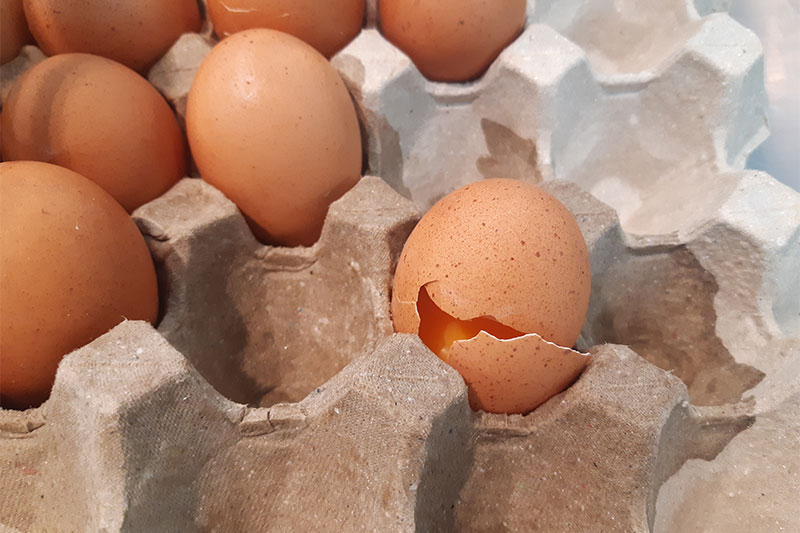
Eggs have a peculiar aroma that you won’t find in any other food, especially when hard-boiled. There’s a sulfur element to eggs that makes them easily recognizable.
These aromatic compounds can slip by unnoticed if you’re experiencing a diminished sense of smell. Failing to smell the sulfur compounds in hard-boiled eggs might mean your body is reacting to a foreign invader such as COVID-19. It might be time to get a coronavirus test.
Coffee
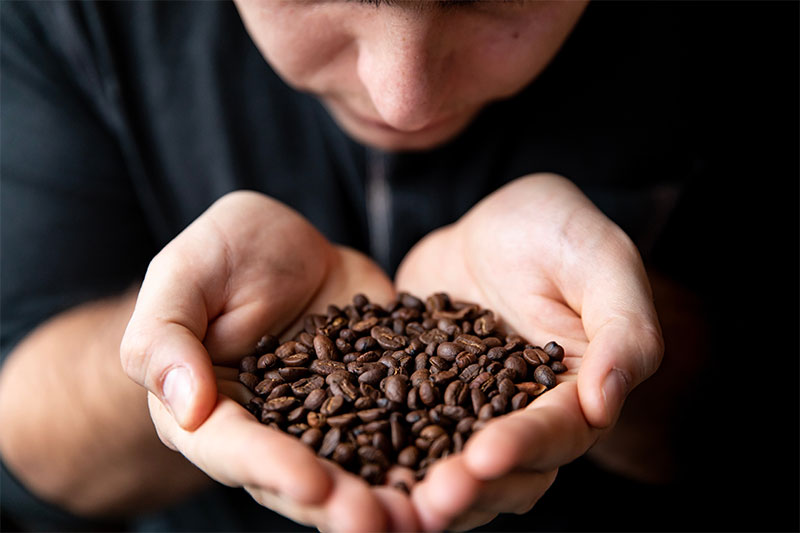
Many of us can’t live without our daily dose of coffee, and when coffee just tastes like bitter boiling water, then you’ve lost one of the world’s simplest but most rewarding pleasures. Coronavirus can diminish your sense of smell and taste, and you’ll notice it first thing in the morning when you pour yourself a cup of joe.
Cheese
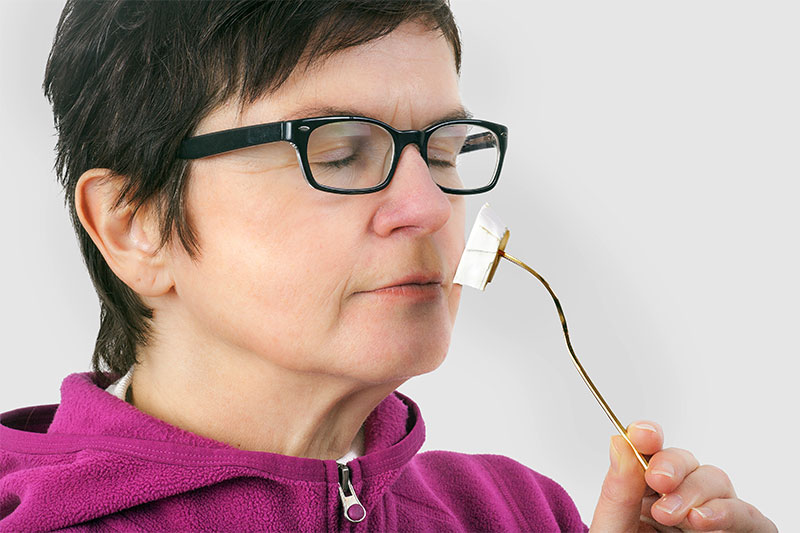
If you can’t smell, then you can’t taste either. And for cheese, that means every bite tastes like biting into rubber — that’s not pleasing at all. Even mild cheese types have a unique aroma, but you’ll notice something is really wrong with pungent aged cheese, washed-rind cheese, or blue cheese taste like wet cardboard.
Cooking Herbs

Aromatic herbs like cumin, rosemary, basil, and oregano, but also mint are aromatically potent and hard to miss. They depend, of course, on your ability to perceive the aromatic compounds that make herbs so appealing. With diminished senses because of coronavirus infection, these are some of the first foods you’ll stop to smell.
Tomatoes
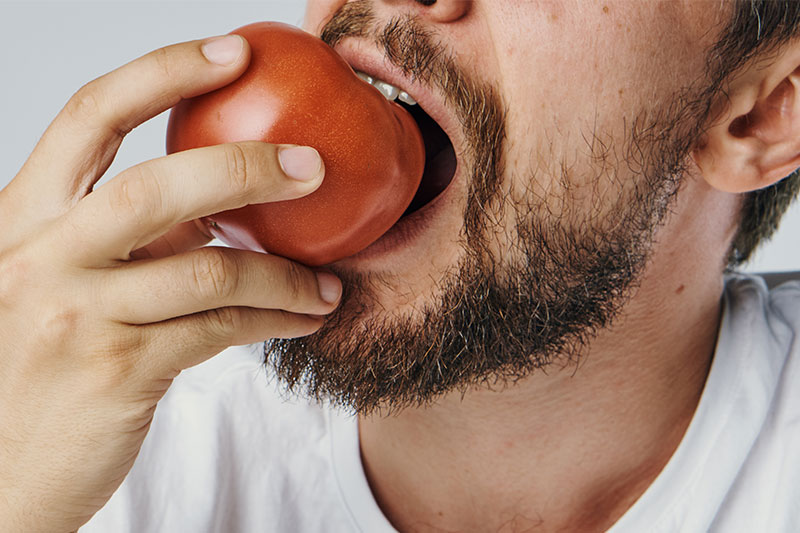
Tomatoes are sweet and tangy simultaneously; they’re juicy, meaty, and texturally gorgeous. For coronavirus, tomato puree might taste like bland oatmeal. If your spaghetti sauce doesn’t taste like it regularly does, you might be infected by the coronavirus. Don’t worry, chances are you’ll be okay and will enjoy tomatoes again in no time.
Garlic

The aromatic bulb that gives flavor to stir-fries, sauces, soups, and stews around the world depends on a compound called allicin to infuse your food with its heartwarming personality. Well, if you can’t taste it, go check yourself because there’s something seriously wrong with your senses, and it could be corona. Please don’t risk it and call your doctor.
Black Pepper
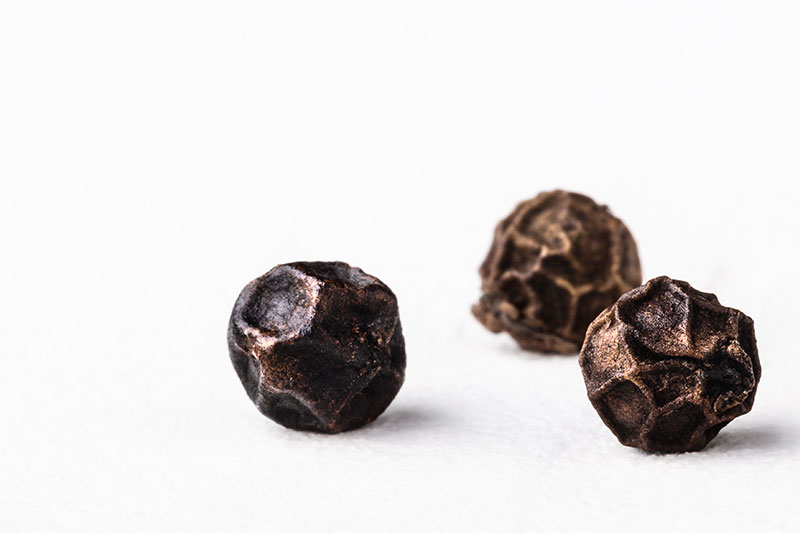
Piperine, the aromatic compound in black, white, and green peppercorns is pungent and intensely fragrant. We could say it’s as hard to miss as it’s hard not to love. The COVID virus, though, might make you lose the ability to detect black pepper aromas and characteristic flavor. Instead, you might only perceive a bitter taste that will effectively ruin your steak dinner.
Seafood
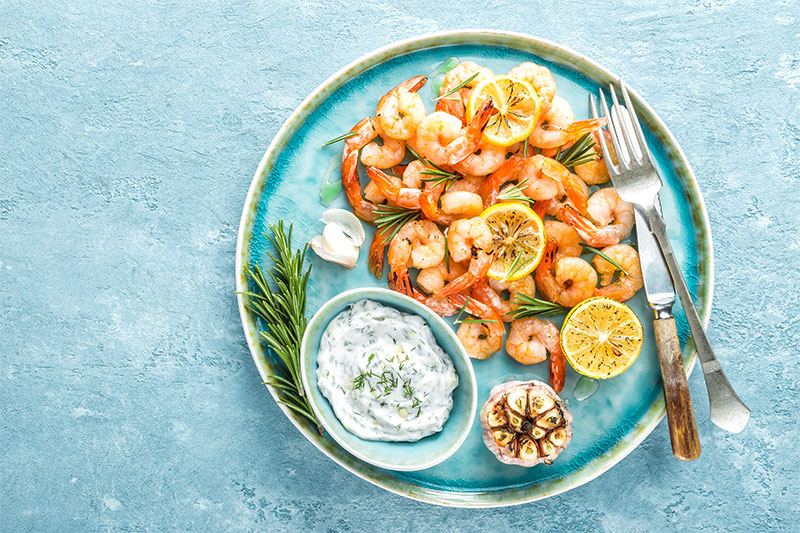
The unmistakable scent of the sea, found in fresh fish and seafood, can easily be lost in translation as your senses of taste and smell are impaired because of a viral infection.
This is particularly dangerous since patients might lose the ability to determine if seafood smells wrong. Food poisoning by contaminated seafood might be more hazardous than the coronavirus itself, so when in doubt, ask someone if something smells overly fishy.
Fear not! There’s A Good Chance You Get Your Senses Back
Luckily for all of us, a diminished sense of smell is most likely temporary and will disappear in a matter of days. Losing your senses is awful, but it’s just another symptom of the COVID virus.
If you feel like food doesn’t smell or taste like it should or smells like nothing at all, talk to your doctor. You might have coronavirus. The good news? Detecting the virus early is one of the safest ways to a fast recovery.


